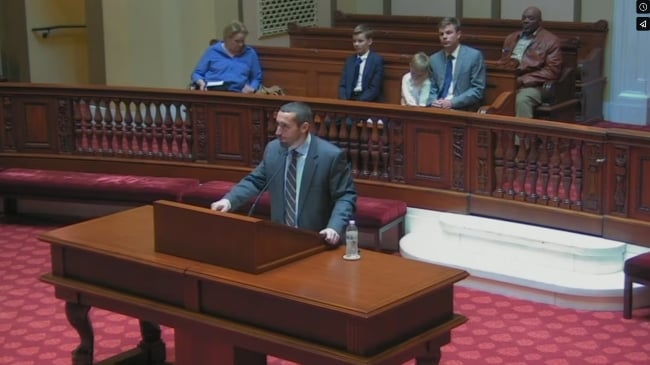2 min read
Making the Case: When Insurance Companies Play Games, We Don't Back Down
Aaron Ferguson Law Sep 23, 2025 1:00:00 PM

When Larry Horton was catastrophically injured—run over by a garbage truck while working for Aspen Waste Systems—his injuries were devastating. Spinal fractures, rib fractures, right arm fractures, and permanent nerve damage that left him unable to use his right arm and hand. Like any employee hurt on the job, Mr. Horton filed for workers' compensation benefits designed to help injured workers recover without financial ruin.
But when it came time to pay his permanent partial disability benefits, the insurance company began playing games. They received his doctor's disability rating in July but waited a month to ask for "clarification." Then they scheduled their own medical examination while still requesting more information from his treating doctor. They were stalling—and we weren't going to let them get away with it.
We saw through their tactics and decided to expose them in court. The stakes were enormous—not just for Mr. Horton's case, but for establishing that insurance companies can't create artificial delays and then claim there was "no genuine dispute" to avoid accountability.
The central issue was clear: When insurance companies receive medical evidence but choose to deny benefits anyway, should that be considered a "genuine dispute" that justifies legal action? The insurance company wanted to create a precedent that would let them drag out legitimate claims while avoiding consequences for their delay tactics.
Exposing the Insurance Company's Real Strategy
In the Supreme Court courtroom, Jeremy laid bare what actually happened. The insurance company had all the information they needed but deliberately chose to create unnecessary delays:
"The clock starts ticking once they're aware of the permanent partial disability rating," Jeremy argued. The insurance company received Dr. Sipple's report on July 9th rating Mr. Horton's injuries. They waited until August 8th to request "clarification"—then didn't respond until November.
Jeremy exposed the contradictory nature of their behavior: "It seems contradictory to reason to hire an independent medical examination and then fire off a letter to the treating doctor again seeking clarification. [It’s like saying] we've already retained an expert because you don't believe him."
The insurance company's own medical expert ended up agreeing with Mr. Horton's doctor—and actually assigned an even higher disability rating. Suddenly, they wanted to settle and asked for the case to be dismissed.
Refusing to Let Workers Get Lost in the System
Throughout the rigorous questioning from the justices, we maintained our focus on the fundamental principle at stake. This was about preventing insurance companies from exploiting the system to avoid paying legitimate claims.
"If we aren't pushing the envelope," Jeremy explained to the court, "otherwise [insurance companies] would have just continued to wait if I didn't do anything."
We challenged the insurance company's attempt to establish a rule that would allow them to deny benefits, create artificial delays, and then escape accountability by claiming there was "no real dispute."
Jeremy demonstrated how the insurance company's behavior revealed their true intentions: "They went so deep into the man's life that they knew how his biomechanics were working in the course of activities of daily living... They just didn't feel like they needed to act."
This video has been edited to include select excerpts relevant to the topics discussed in this blog. To view the full proceedings, visit the Minnesota Supreme Court Oral Argument Video Page.
Standing Up to Corporate Manipulation
Our advocacy prevented insurance companies from gaming the system by creating artificial disputes, stalling legitimate claims, and then avoiding responsibility by claiming no genuine dispute ever existed.
The precedent we established sends a clear message: When insurance companies have adequate time and information but still choose to deny benefits, that creates a "genuine dispute" that justifies aggressive legal action to protect workers' rights.
If you've been injured at work and are facing delays or denials from insurance companies, recognize that these aren't accidents—they're strategies. We understand the games they play: the unnecessary requests for "clarification," the deliberate delays, the hope that you'll simply give up and walk away.
You don't have to accept their manipulation. We'll call out their tactics, challenge their delays, and hold them accountable.
Contact us for a free consultation and discover what happens when insurance companies try to play games with attorneys who know exactly what they're doing.
